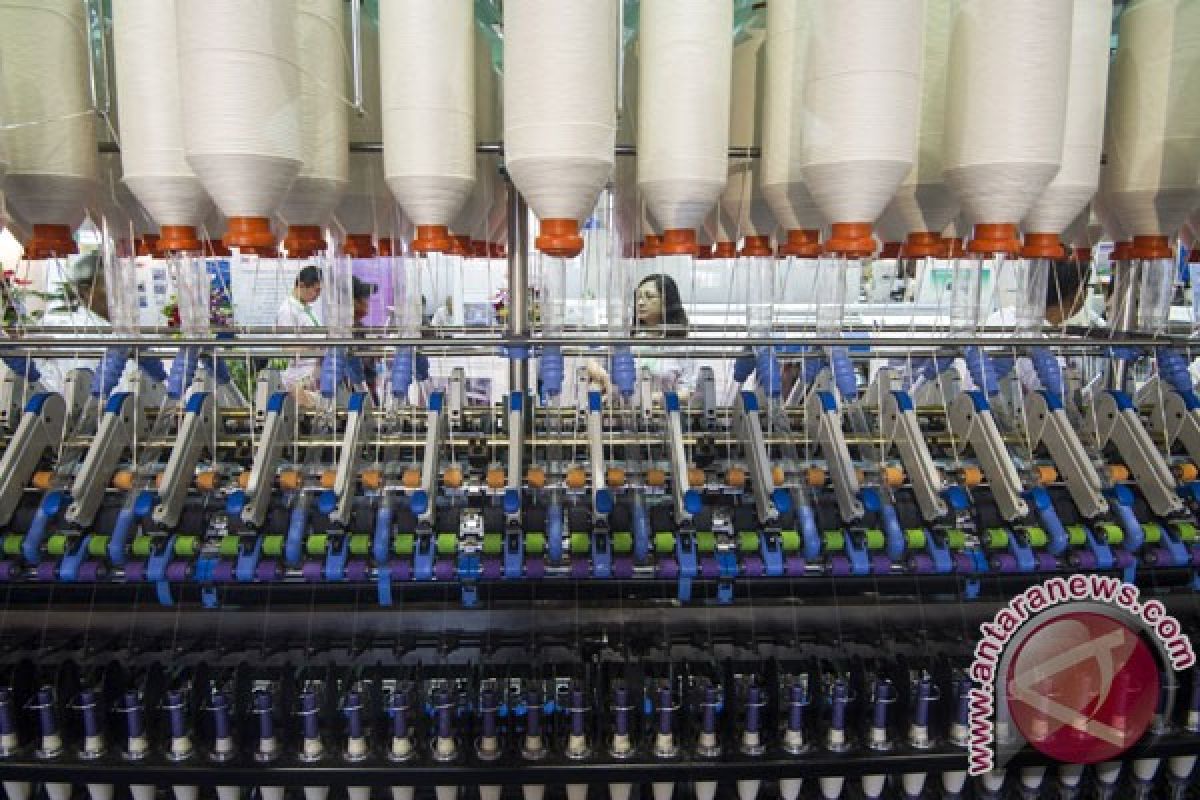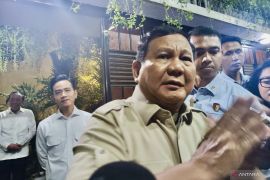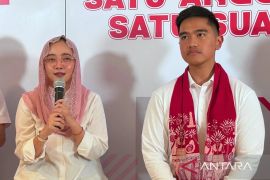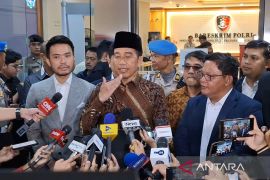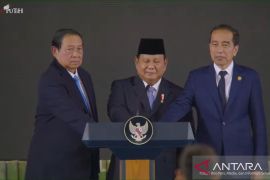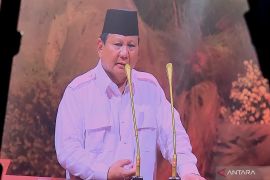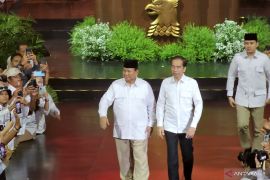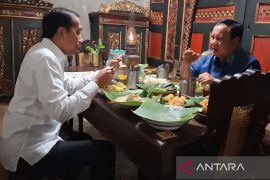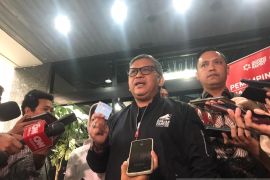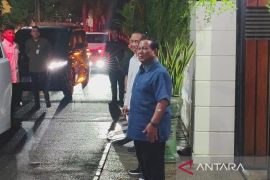A huge amount of manpower is expected to be absorbed, taking into account the facilities available at the zone."Jakarta (ANTARA News) - The government of Indonesia will continue to make every effort to strengthen and improve the textile industry and textile products to remain competitive.
Strengthening the textile industry is very important because it is one of the manufacturing products that is recommended for increase in the interest of developing national exports.
The business of textiles and textile products was hampered by smuggling or illegal imports of used clothing in some parts of Indonesia, but the government is set to take firm action against these activities that hinder the growth of the manufacturing industry.
Finance Minister Sri Mulyani Indrawati has said she act against illegal imports of textile and textile products and the importers who have been misusing the facilities provided by the customs and excise department.
The minister said she would invite the relevant ministries and institutions to review the rules on textile imports, which are still conflicting, overlapping, and incompatible with the needs of society, trade, and industry.
Currently, the textile manufacturing industry is a labor-intensive one that absorbs a lot of labor and even creates new jobs in the distribution and trade sector.
Indonesias export trade statistics in 2016 showed that textile commodities contributed 9.61 percent to the total export value for non oil and gas products, or the second highest after palm oil exports.
Therefore, President Joko Widodo (Jokowi) has said he will ask his staff to seek a breakthrough to save the textile industry and textile products in Indonesia.
Chairing a limited meeting on the Textile and Textile Product Trade System at his office early this week, President Jokowi asked all relevant ministries to take groundbreaking steps in overcoming the existing problems of the textile industry.
The president stated that various policies would continue to be pursued to support the domestic textile industry in remaining competitive.
With regard to the global market, the president acknowledged that today, Indonesia is still inferior to Vietnam, especially in the markets of Europe and the United States, but Vice President Director Iwan Kurniawan Lukminto of the publicly listed PT Sri Rejeki Isman (Sritex) has stated that the national textile industry will remain prospective and promises to meet one of the needs of the 250 million people in the country.
Established in 1966 and headquartered in Solo, Central Java, PT Sritex engages in the production of textiles and operates through the segments of spinning, weaving, finishing, and garments.
Kurniawan remarked recently that Indonesias textile industry will continue to grow in the years to come and has sufficient quality to compete in the world market because it is now equipped with modern and sophisticated technology.
In addition, the Indonesian domestic textile market also has vast potential while targeting its population and has the market opportunity to meet the demand for textile products in many countries around the world.
"The textile industry in the country remains promising and will continue to evolve to meet the needs of the clothing world," the vice president director of PT Sritex stated.
"We believe that public perception, especially from banks, that the textile industry is a sunset industry is incorrect, because for us, it is a sunrise industry, which remains promising and prospective for the years to come," Kurniawan went on.
The Sritex vice president director expressed optimism that so long as the human population in Indonesia and the world continues to grow, the need for textiles and textile products will continue to exist and grow.
In the next 10 to 15 years, competition in the world textile market will give Indonesia a broader market share, Kurniawan remarked.
Amidst the current textile competition, the Chinese textile market, which covers many countries around the world, has experienced a decline in global exports in recent years, he said.
China experienced a decline in exports of about 2 to 3 percent from its 38 percent share of the world textile market in 2013, according to him.
This decline was a good opportunity for Indonesia to increase its capacity and expand its textile market across the world.
Seeing the promising and prospective textile industry in the country, investors from the China Jiangsu Dongqun Investment Holding Group Co., Ltd have expressed interest in developing the textiles and textile products industry in Indonesia, with an investment of US$100 million.
Indonesia will certainly welcome the interest shown by these investors, Industry Minister Airlangga Hartanto noted in a press release here recently.
Airlangga also presented several prospective locations for investment, such as the Kendal Industrial Area in Central Java, taking into account the size of the land plots and the skilled labor available.
The statement was made by Airlangga, who accompanied President Joko Widodo on a working visit to the Peoples Republic of China early in September to attend the G-20 Summit in Hangzhou.
On the occasion, a meeting was held with the management of Jiangsu Dongqun Investment Holding Group, which sought information on the investment incentives as well as the availability of power for the textile industry in Indonesia.
The Ministry of Industry is accelerating the development of the Kendal Industrial Zone to boost the national textile industry and improve its competitiveness.
"We fully support the development of the Kendal Industrial Zone, especially as it has an integrated special cluster for the textile industry from upstream to downstream," the industry minister remarked.
The Kendal Industrial Zone is expected to offer added value and to boost the competitiveness of textile products in the domestic market and abroad.
A Fashion City will be built in the industrial zone on a 100-hectare plot of land.
The Fashion City will have several facilities, such as a center providing raw materials, a shopping center, exhibition hall, and a textile research and development center.
"A huge amount of manpower is expected to be absorbed, taking into account the facilities available at the zone," Airlangga affirmed.
The Ministry of Industry has reported that the textile industry is a labor-intensive sector that can create jobs for 1.5 million people, or 10.36 percent of the workforce in the industrial sector.
(Uu.O001/INE/KR-BSR/F001)
Reporter: Otniel Tamindael
Editor: Priyambodo RH
Copyright © ANTARA 2016
